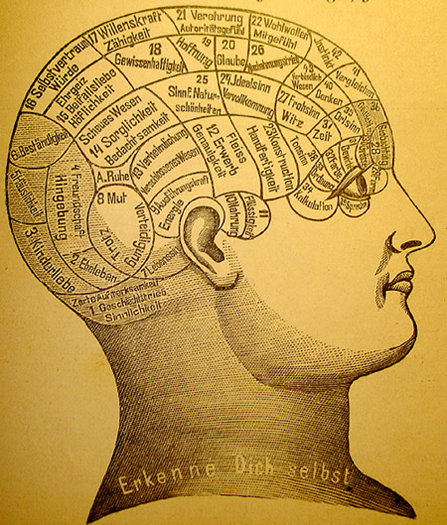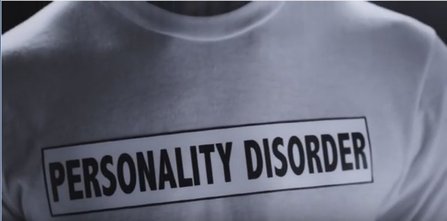The “Secret” Practice of Scientology
In the course of everyday conversation, I don’t normally broach the topic of religion anymore than the next guy. On occasion though, it comes up that I am a Scientologist. I’ll never forget a buddy of mine literally turning white in shock. We’d been hanging out on and off for years. I’d even heard him describe me as “highly intellectual” once (whatever… I’ll take it). An avid news junkie, he’d made some quip about Scientologists being idiots, so I told him I was one.

What he had heard and read about Scientology was so at odds with what he knew about me that he simply couldn’t process it. He just sat there staring into space for about 15 seconds (it was priceless). When he finally recovered he began to question me about it. Over the next half-hour he found out that I don’t do or think any of the crap the media has cooked up about us over the years (though he still hasn’t gotten the concept that you can be in a religion without “believing in” it). Finally he asked: “Well, what do you guys do then?”
Scientology is not concerned with what’s wrong about you, but instead, what is right about you and increasing that rightness. Increasing the percentage of rightness will always decrease the wrongness. That’s just simple arithmetic.
It was a good question. I hadn’t given much thought to a simple way to phrase it. Then it came to me: “We promote rightness. That’s the simple answer.” Then I went on to explain it. He was hoping for some weird, juicy secret stuff from an insider but I had to disappoint him. Nothing there to tell. After that night, the more I thought about it, I realized that’s really all I had been doing over my years as a practicing Scientologist. So now I’ll explain it to you.

The model of mental health that we’ve all grown up with is “normal” versus “abnormal,” with “normal” being held out as the perfect mental state to aspire to. Anything above that has names like genius, eccentric, geek, nerd, etc. Anything below is called stupid, insane, strange, etc. On both sides of the spectrum, the farther from normal, the more the catch-all phrase “weird” is applied. If no one can hang any of these labels on you, you’re “normal” and you’re safe within society. The more of these labels that can be tacked onto you by others, the more dangerous simply being yourself becomes. Just think about how much time and energy you have spent (especially as a teen) on trying not to be thought of as weird or different.

But here’s the problem: “normal” in the Kalahari Desert is not normal in New York. “Normal” in Folsom Prison is not normal in a Mormon Temple. Except as a subtle method of control, “normal” is just not a very useful model and it’s certainly not much to strive for.
Since there are such wide variations in environments and societies on Earth, the model used in Scientology does not try to cram as many people as possible into one vague, undefined, ever-changing mold called “normal.” Instead, the philosophy looks at degrees of rightness and wrongness for each individual and each environment, with the intention of bringing about the greatest possible degree of rightness.
Scientology is not concerned with what’s wrong about you, but instead, what is right about you and increasing that rightness. Increasing the percentage of rightness will always decrease the wrongness. That’s just simple arithmetic. The moment I realized this was what I was learning was the moment I became a Scientologist. It was a simple formula. It made so much more sense. It was something anyone could use to help themselves and others in everyday life.

I had seen too many people beaten down by constantly being told how wrong they were. Labeled with “disorders,” never with their good qualities. Convicted of the crime of being even slightly different. Almost every one of those people had some unique quality that set them apart. If you care to dig for it, everyone does, and it’s usually not a small thing.
After that, the task is getting past the “normal” social masks to find the real person. Finding out, pointing out and bringing out what is right about people has become my life-long passion. I can pursue it anywhere.
Want an example? OK. My latest conquest I will call Mr. B.
Four years ago I hired Mr. B to fix my truck at my house. When I told him to take a break and brought him out some coffee—where most people would mind their own damned business—I butted in and got him to open up.

For years he’d been constantly berated and blamed for everything by an alcoholic wife and he’d finally thrown in the towel. A beaten man. At 60 years old, he was sleeping on friends’ couches and all he had in the world were his tools and his work truck. Little money. No future. No prospects. However the other thing that came out as we talked was a highly polished sense of humor with an ability to imitate any accent or mannerism when relating a story. Many tradesmen will often turn to humor as a way to blow off steam from their tough, fatiguing work, but he had me in stitches. This guy was good! He had raw intelligence and talent, yet considered himself a complete loser. So I put on my Scientologist hat and went to work.

I asked him to tell me about the last time he was doing well. For him, it was the positive environment he experienced in his church. “Maybe I should start going again,” he said. “It’s not like you’ve got much to lose by trying it,” I said. He laughed. “You know I think I will!” said Mr. B. “That’s probably smart,” I said. He did.
Mr. B was also looking for a way to pick up some quick money. I asked him what he’d always wanted to try. With a dreamy look he said: “I always thought it would be cool to work in movies.” Recently my wife had been making money as a movie extra so I suggested that. He got excited at the idea so I had her hook him up.
It costs nothing but a little time to openly admire someone’s unique ability. After all, in this entire universe, there is only one of that person who’s in front of you. That’s amazing when you think about it.
OK. I’m sure you can see where this is going. As time went on I kept encouraging his interests and talent in our conversations, making sure to casually point out his abilities and the good effects he had on others. My wife found being a movie extra tedious. Mr. B loved everything about it. In addition to his work as an extra, he would pitch in to help out the caterers and the cameramen and anyone else he could. He became noticed and well-liked at all the shoots he went on, working his way up in TV and movies as a “featured extra.”

Over another cup of coffee (later) he was relating the great experiences on his shoots, wanting to do more. I asked him if he’d considered acting classes, then listened to him give me every reason why it was “no use” and how nothing good would ever happen to him. I argued by pointing out all the good things that had happened to him, also pointing out that he made them happen. He couldn’t argue back. It was true. “What the hell do you have to lose? If you love the business, give it a shot!” So he did.
And yes, folks, he was a natural.
When we spoke two weeks ago, he’d not only landed his first speaking part but had another audition that week that his agent had lined up. He was as happy as I’ve ever seen a man. New life. New career. Something he loved to do whether he got paid or not. My part in that was not big nor dramatic. I didn’t do it for him, but I know for a fact that I did tip the scales, and most of the time a little push is all it takes.

It costs nothing but a little time to openly admire someone’s unique ability. After all, in this entire universe, there is only one of that person who’s in front of you. That's amazing when you think about it.
Anyone can do this, but so few people will.
If there is anything that sets humans apart from other life forms it’s our infinite abilities and differences. Yet so much of our time and effort is spent on holding ourselves back (and holding each other back) in the sad and unrewarding pursuit of “fitting in” and “being normal.”
I’ve had many such personal victories over “wrongness” over the years. It’s my thing, my passion, my hobby and art form. L. Ron Hubbard created many techniques based on his discoveries, so the more Scientology I learn, the better I get at it. And it’s satisfying to know that there’s nothing anyone can do to stop me. I can always do this thing I love, no matter where I am, or in what circumstances. I can always do something to help make someone better, happier and more right.










